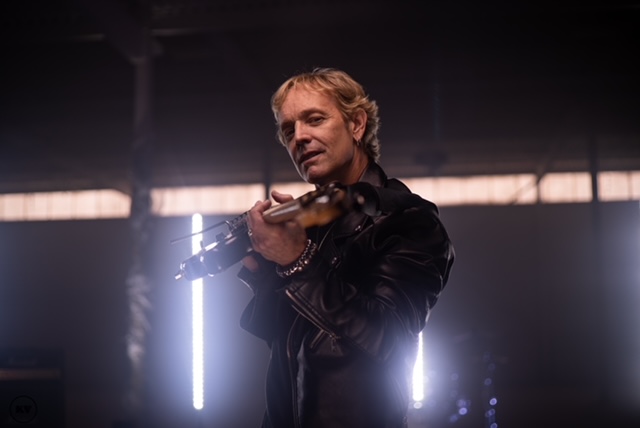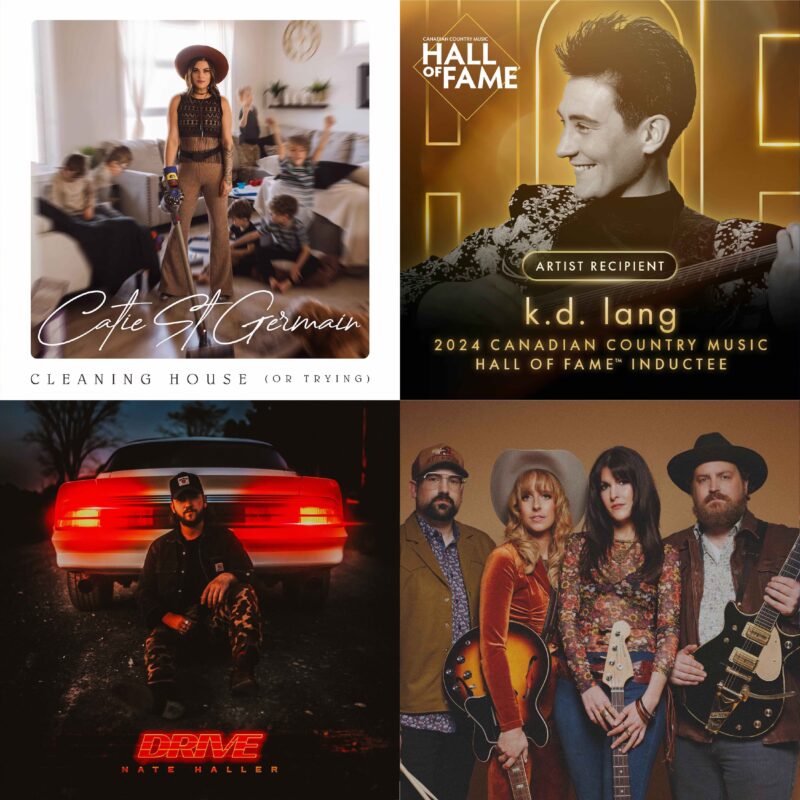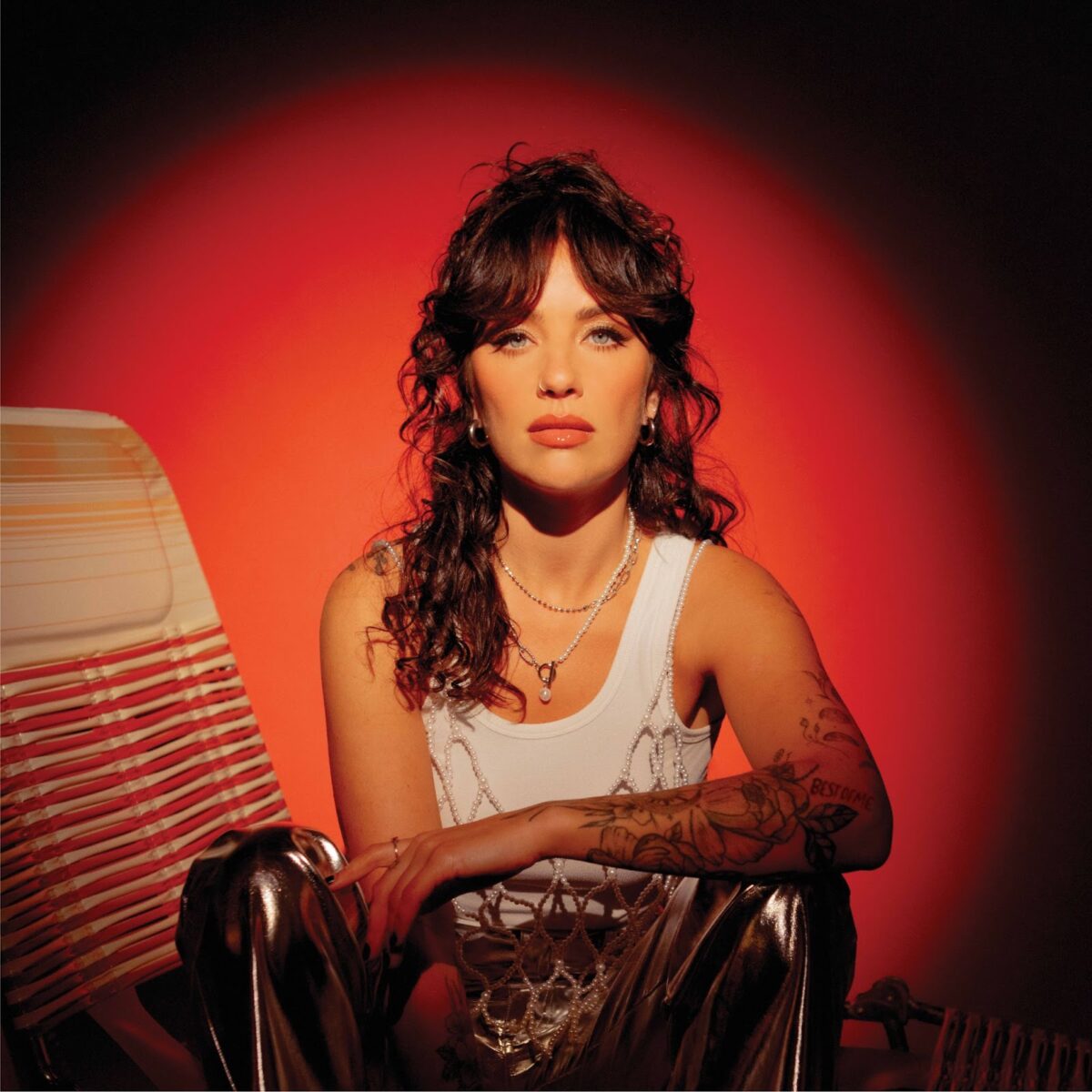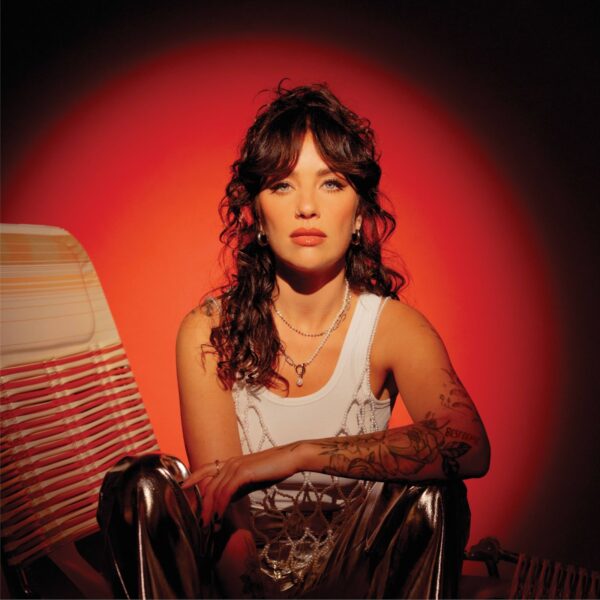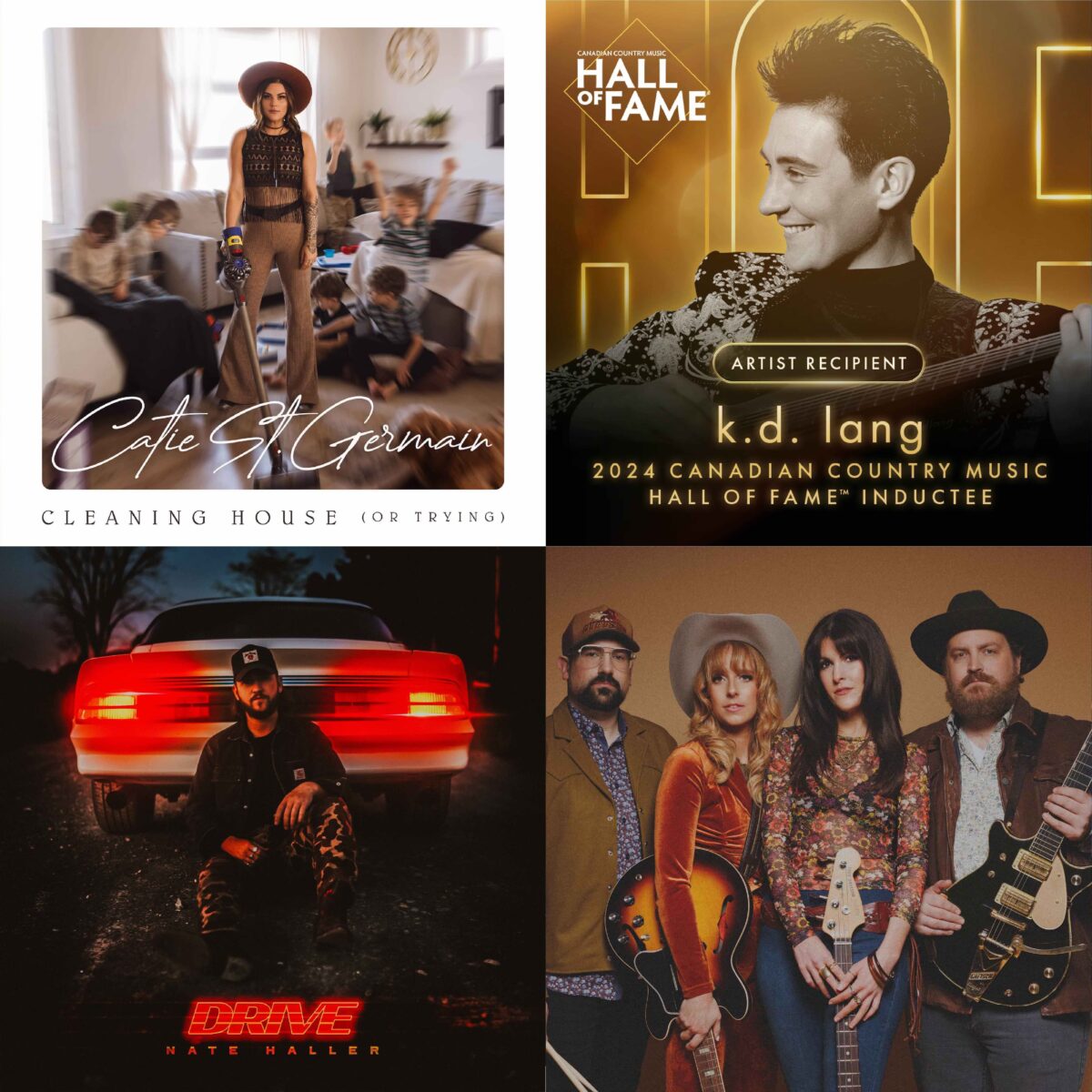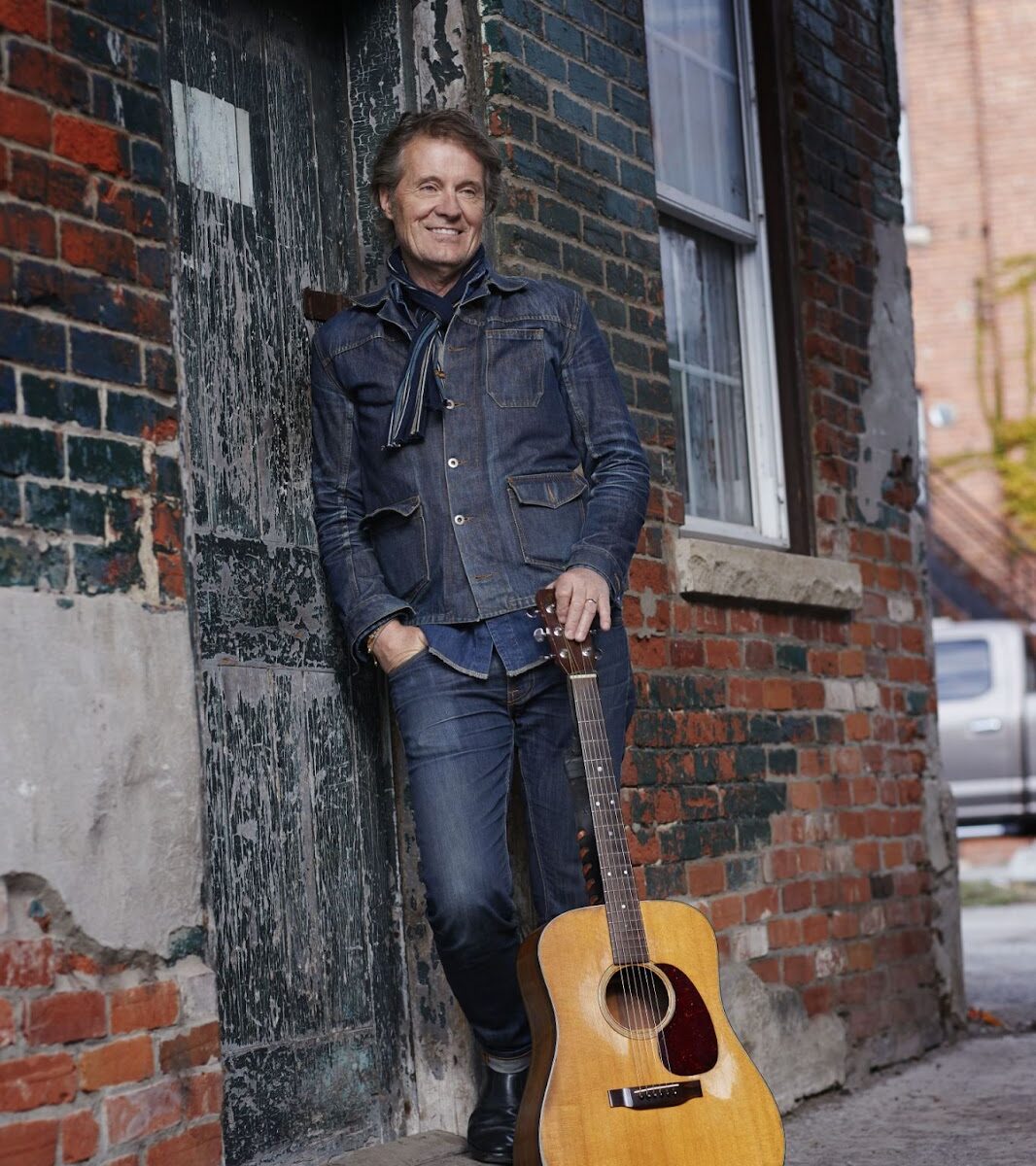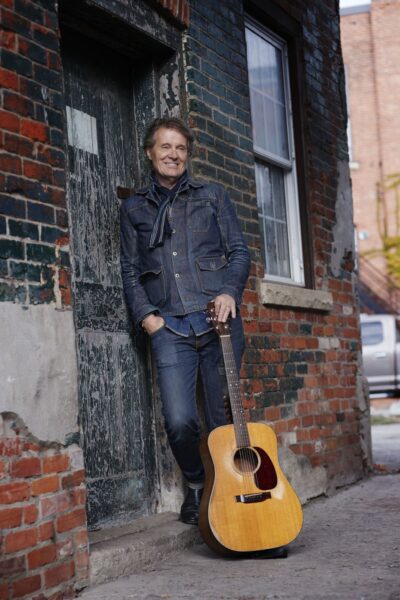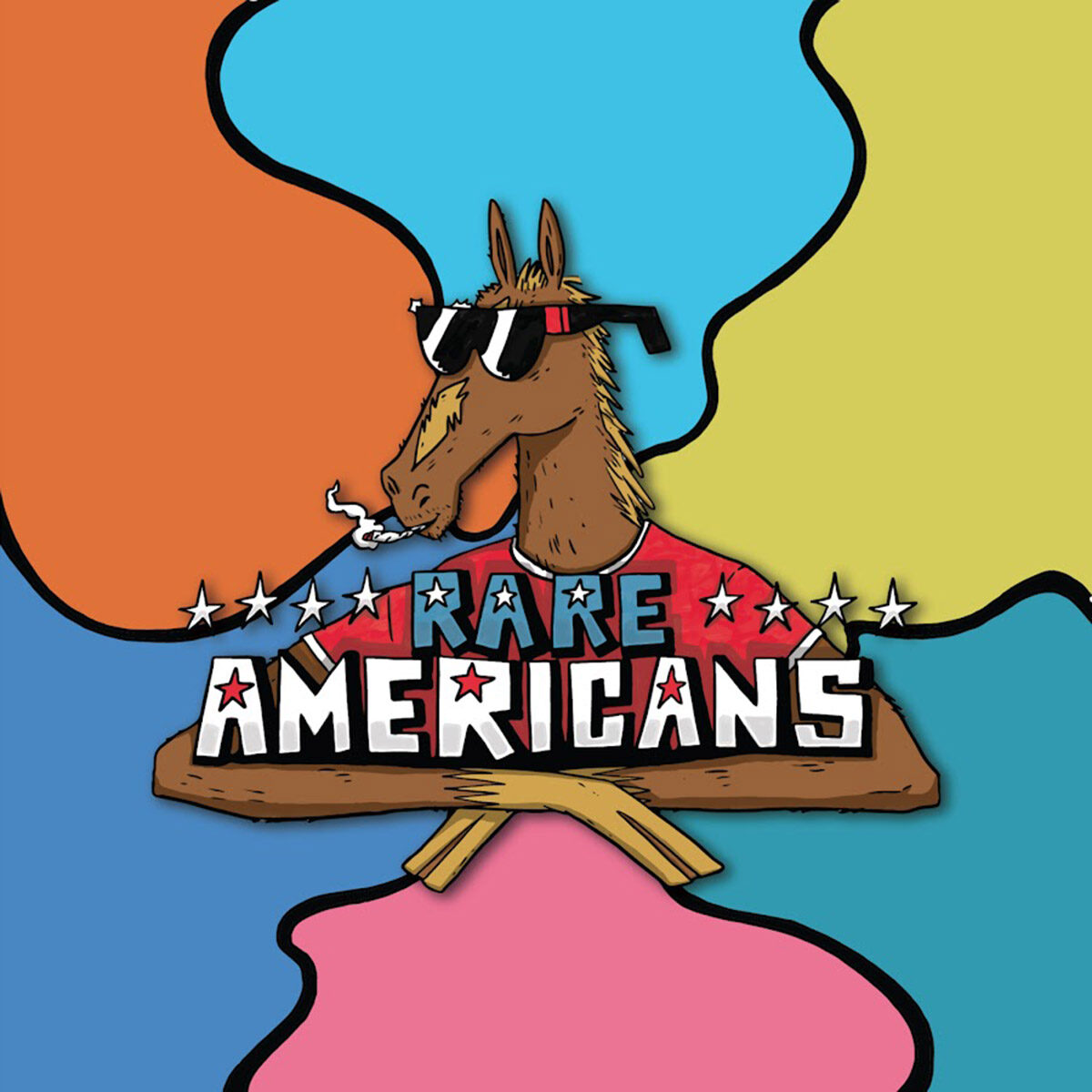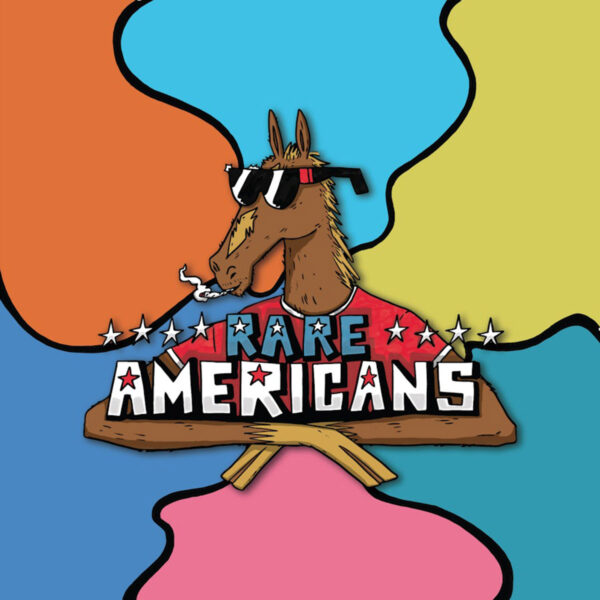Backstage at Oshawa’s Regent Theatre, Prism guitarist/vocalist Al Harlow is fawning over his new love, an exquisite turquoise-coloured teardrop-designed, twin pick-up version of a Vox Mk 111 guitar, the same model originally played by former Rolling Stones’ guitarist Brian Jones.
“I spent decades searching for a guitar like this and then I found one online at a South Los Angeles pawn shop,” Harlow allowed as he strung the vintage classic model. “I blubbered that I was in this Vancouver band called Prism and that I really wanted this guitar and he said `Relax it’s yours”. But what really sealed the deal was our mutual love of Jaguar cars and the fact I sent one of his heroes, Warren Cann from Ultravox to pick it up for me. That brought the price down significantly.”

Harlow would put his Vox MK111 and the rest of his arsenal of guitars to good use as he and bandmates; drummer Gary Grace, keyboardist Marc Gladstone and bassist Tad Goddard romped through two sets of classic Prism hits during a rare Ontario visit. “I call it the Spaceship Superstar/Armageddon sandwich said Harlow of his band’s pending setlist. “We start off with “Spaceship Superstar”, finish the regular set with “Armageddon” and then it’s a question of what songs do we put in between that sandwich. There are certain songs we have to play, “Night To Remember” “Flyin”, “Young And Restless” but we do sneak a few lesser known tracks in” This night the list included “Nickels And Dimes” from the band’s second album; “See Forever Eyes” and “Virginia” from `Armageddon before a final encore of “Take Me To The Kaptin” off the band’s 1977 debut release.

What is evident is that this is not your dad’s Prism, that dour, lifeless band featuring lead vocalist Ron Tabak, lead guitarist Lindsay Mitchell, keyboardist John Hall, drummer Rocket Norton and Harlow, then on bass, who spun out a series of radio hits over their four albums but always seemed to be at odds with each other.
Now fronting his own version of Prism, Harlow is free to do his Chuck Berry duck walk across the stage, jump into the audience and play guitar on his back while still singing the same high-level vocals that were synonymous with Tabak.
“The truth is that I wasn’t allowed to do those things previously in Prism,” Harlow admitted. “When I joined them from Seeds Of Time, they didn’t know what to do with me. It was like, `Hey, you know that thing you do, can you please just tone it down. Just stand there and don’t get in anybody’s way.”
“Lindsay Mitchell became really conflicted with Prism’s pop success, it was embarrassing to him,” Harlow continued. “We’d get off the plane after a successful U.S tour and Lindsay would jump out of his stage clothes and jump right into a local blues jam. He tried to forget that this Prism thing was having any success.”

Harlow is celebrating 41 years in Prism this year by releasing an autobiography titled `Flyin’ and two solo albums, one a retrospective release of material recorded before he joined Prism titled “Then, Before The Beginning and the second a selection of new material that he has already successfully debuted to a select audience in White Rock B.C
Initially formed as a Vancouver studio project by Seeds Of Time guitarist Mitchell and Sunshyne horn player and soon to be noted producer, Bruce Fairbairn in 1977, this project, attracted other studio musicians like Jim Vallance and bassist Tom Lavin, later with The Powder Blues Band. It soon became apparent that to secure a record contract they needed to form a band so Mitchell drafted in Ron Tabak as a new frontman, GRT Records released their self-titled debut. By the time they released their follow-up “See Forever Eyes” In 1978, Fairbairn, Vallance and Lavin had dropped out to be replaced by Seeds Of Time alumni Rocket Norton on drums and Harlow on bass.
Harlow also contributed a couple of key tracks to that album; “Flyin” and “Take Me Away” and co-wrote “Nickels And Dimes” and “Just Like Me” with Mitchell but the restrictions that were put on his live performance had him considering whether he had made the right move or not.
“I should have quit the band five minutes after I wrote “Flyin” and “Take Me Away”,” Harlow reflected “and said thanks’ see you later. But we were enjoying a fair degree of success so I thought I should be that loyal foot soldier and stick it out.”
And yes, Harlow did stick it out, through the success of their 1979 `Armageddon’ release, the subsequent lack of success of their 1980 opus “Young And Restless” (which still won them a 1981 Juno As Group Of The Year) to the disastrous decision later that year to replace Tabak with former Scrubbaloe Caine front man Henry Small.
“That was a decision made behind closed doors by manager Bruce Allen and Lindsay. Lindsay was always trying to fire somebody. One day it was John (Hall), next day it was Rocket (Norton) and of course they tried to fire me,” revealed Harlow. “Ron had his problems but we should have stuck by him, I am sure that if that lineup had stayed together we would have been good for at least five more albums.”
“So Loverboy’s Paul Dean suggests Henry Small (former Scrubbaloe Caine band mate) and Bruce brings in this complete stranger from LA that none of us had ever met,” Harlow continued. “So Henry gets off the plane, declares that he’s not interested in our songs, that he had his own songs and that he was here to rescue us! Well, that’s not getting off to a good start.”
In effect, Small high jacked the band for two releases; “Small Change” (1981) and “Beat Street” (1983) before heading off into the sunset leaving the band in a shambles. “But we were aware that we were still getting airplay, it had been less than a year since we were on the charts and other labels were pitching themselves to us so in November 1984, the five of us; Mitchel, Tabak, Norton, Hall and myself decided to reform. We took a break over Christmas, decided to reconvene in January, only for Ron to die during the Christmas holidays”.
Tabak was involved in a motorcycle accident while riding over to Harlow’s house, was taken to hospital where he received clearance but then he became violent and was taken into police custody. He was later found unconscious in his cell, was quickly taken back to the hospital where a blood clot was found on the right side of his brain and he died on Christmas Day.
It took Harlow three years to get Prism back in shape (with the aid of Simon Kaos frontman Darcy Deutsch) and the band underwent a series of personnel changes before Harlow assumed complete control, working with Gladstone, Grace and Goddard, a lineup that has lasted longer than any previous Prism lineup.
“I kind of see myself as the guardian of the band’s catalogue. The songs fit me like an old pair of jeans but I never get bored with singing them,” Harlow explained. “I find new ways to interpret those songs every time I sing them.
With support from his band and Headpins’ drummer Bernie Aubin who also runs the successful Canadian Classic Rock booking agency, Prism has kept busy playing festivals across the country. “We are finding out that nostalgia is not a bad word,” Harlow allows. “It’s great that we continue to appeal to our old fans but we also continue to attract a younger crowd that is just discovering our music, it’s a humbling experience. And I can honestly say that the guys I have now are the best musicians that I have ever had the privilege to play with.”

